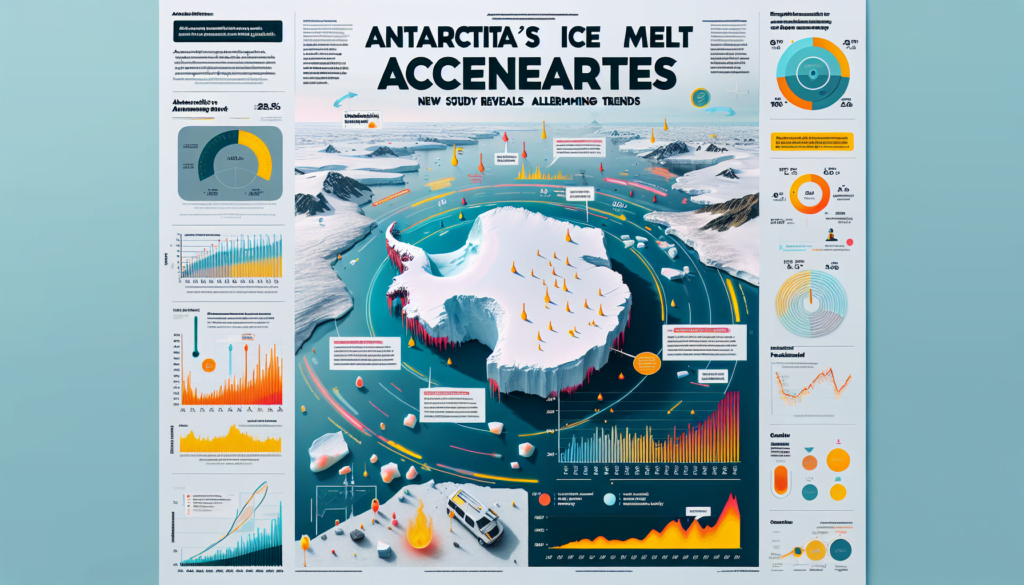Contents
Introduction
The Study’s Findings
Conducted by a team of international scientists, the study utilized satellite data, advanced computer models, and on-the-ground measurements to assess changes in Antarctica’s ice mass. Their findings are stark:
- The rate of ice loss from the Antarctic ice sheets has increased threefold in the last three decades.
- Antarctica is losing approximately 219 billion metric tons of ice annually, compared to just 90 billion metric tons per year in the early 1990s.
- Key areas such as the West Antarctic Ice Sheet contribute most significantly to this ice loss.
Causes of Accelerated Ice Melt
The accelerating ice loss can be attributed to several factors:
Climate Change
Climate change is driven by human activities, which is the primary driver. Rising global temperatures have increased oceanic and atmospheric temperatures, causing the ice in Antarctica to melt at unprecedented rates.
Ocean Currents
Warmer ocean currents are reaching the undersides of ice shelves and glaciers, accelerating melting from below.
Feedback Loops
As ice melts and sea levels rise, this can create feedback loops that exacerbate the problem. For instance, the loss of reflective ice surfaces leads to more sunlight absorbed by the dark ocean, further increasing temperatures.
Implications for the Planet
The consequences of rapid ice melt in Antarctica are profound and far-reaching:
Rising Sea Levels
One of the most immediate and visible impacts is the rise in global sea levels. Coastal cities and low-lying island nations are particularly vulnerable to flooding, storm surges, and erosion.
Disrupted Weather Patterns
Changes in Antarctica’s ice can affect global weather patterns. For instance, the influx of freshwater from melting ice can disrupt ocean currents, which play a crucial role in regulating the Earth’s climate.
Ecological Impact
The melting of ice affects the unique Antarctic ecosystem, threatening species that have adapted to the continent’s frigid conditions. This could lead to a loss of biodiversity and profound changes in marine life.
Global Response and Future Research
The findings underscore the urgent need for global action to combat climate change. Nations must increase their commitments to reducing greenhouse gas emissions and transitioning to renewable energy sources. Furthermore, continued research and monitoring of Antarctic ice melt are essential to improve predictions and formulate adaptive strategies.
International cooperation and funding for scientific research in Antarctica will play a critical role in addressing this global challenge. By pooling resources and expertise, the scientific community can better understand these complex processes and guide policy decisions to mitigate the worst impacts of climate change.

